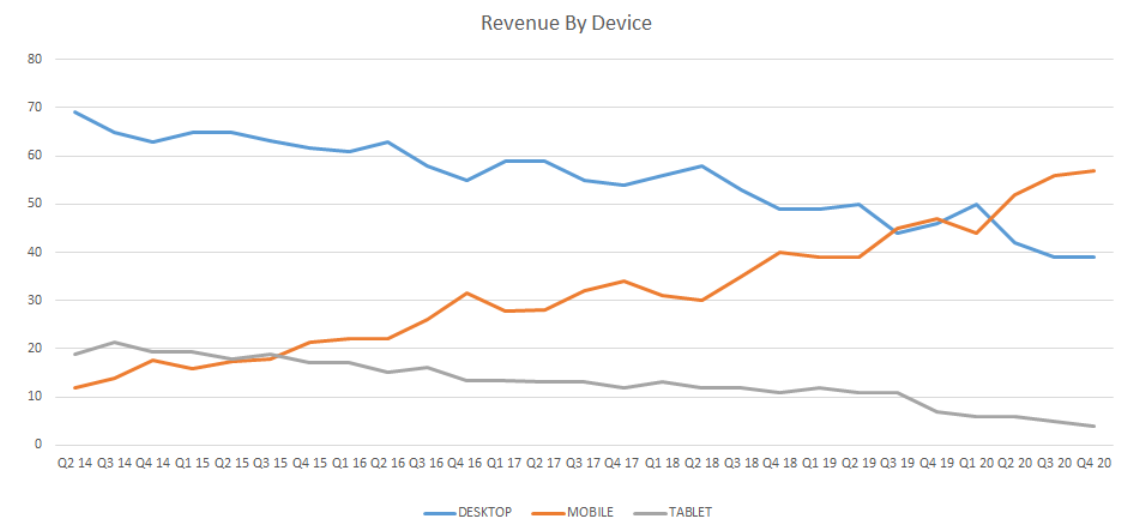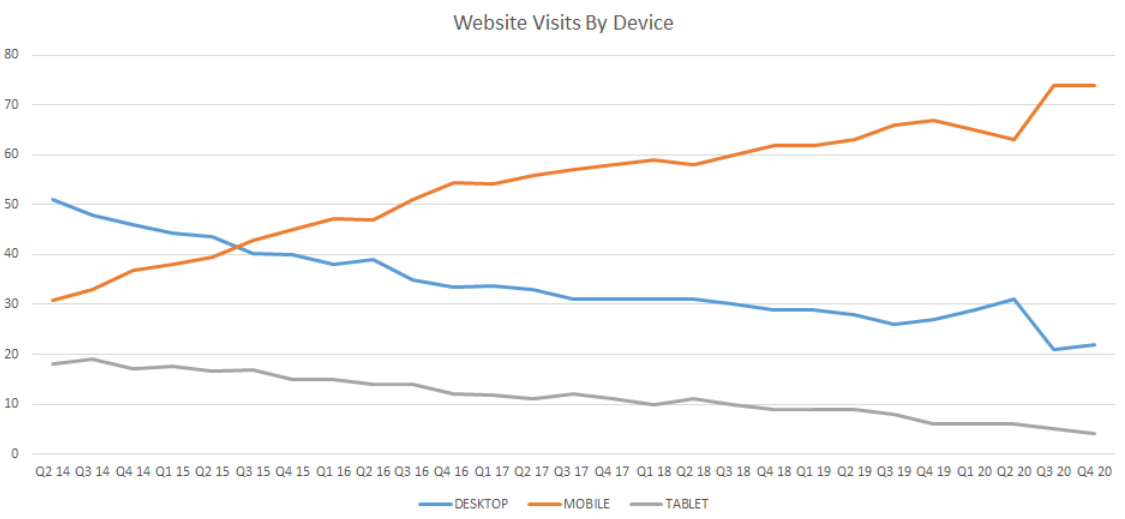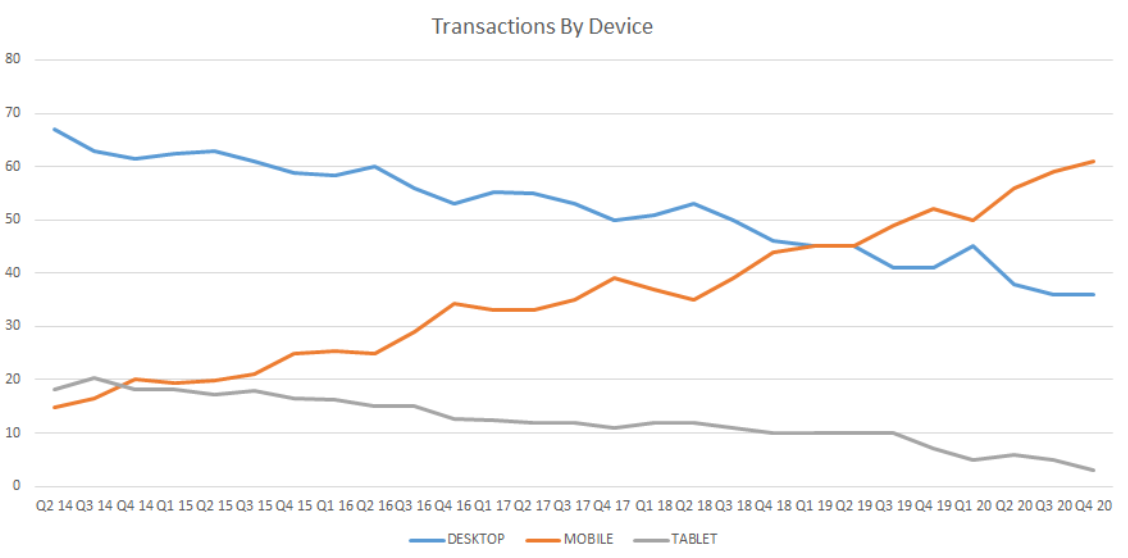During 2020 as a whole, we saw mobile traffic and revenue grow exponentially across our hotel and accommodation provider clients.
Elsewhere, it was interesting to see how the coronavirus affected our tech habits. In April last year, the NYT reported that the average American was spending less time on mobile and more on desktop. Facebook, Netflix and YouTube all saw user numbers on their phone apps stand still or fall off as their websites grew.
Deloitte have discovered that while smartphone usage has fallen for the 2nd year in a row (it’s at 90%), there’s been an upsurge in standard mobile phone usage over the same period. They also found that the smartphone continues to be the preferred device for a growing number of apps and demographics.
Every quarter, we share the latest device trends to help inform you of where the majority of your traffic and revenue is coming from. Steadily, we’ve noted the rise in mobile (traffic and revenue) over the last year. In Q3 of last year, we saw mobile traffic share come in at a record breaking 75%.
The growing mobile effect

In Q4 of 2020, we saw mobile revenue share come in at 57%, peaking in October at 59%, and dropping to 56% in December (most likely due to the increase in voucher sales, which people still prefer to buy on desktop).

Deloitte found in their latest digital usage report that around half of us browse shopping websites/apps or purchase products online. When it came to our own mobile traffic trends, we saw it peak at 76% in December.

We noticed the percentage of people making transactions on mobile grew from 59% in Q3 to 61% in Q4, peaking in October at 62%.
We’ve noted before in years gone by a significant drop in mobile performance from Q4 to Q1 of the next year, due to a drop in social activity after Christmas. With the country, and continent, predominantly still under lockdown (and predominantly working from home), we’re curious to see whether this trend will continue regardless. Watch this space!

The growth of mobile throughout 2020
- Traffic increased by 11% from 65% in January to 76% in December (previous avg. 12 month increase would’ve been 5%)
- Revenue share increased by 12% from 44% in January to 56% in December (previous avg. 12 month increase would’ve been 7%)
- Transaction share increased by 9% from 50% in January to 59% in December (previous avg. 12 month increase would’ve been 7%)
And… what about the rest of the devices?!
Desktop
We noticed a slight uplift in desktop traffic, to 22% of overall traffic. Despite the uplift, it has remained at its lowest level ever.
The percentage of desktop transactions stayed below 40% for the third quarter running. Just over 1 in 3 transactions were done on desktop in Q4.
The tablet
Tablet traffic hit an all-time low of 4%, with tablets in December getting just 3% of overall traffic.
Transactions on tablet also hit an all-time low of 3% in Q4.
So… how can you make sure your website is mobile-first?
- Ensure your website & booking engine are fully responsive. Without a responsive web design, mobile browsers will unsuccessfully try to make the content appear clearer by increasing font sizes or showing content that fits within the screen
- Provide a great UX experience. Mobile users are very goal oriented. They want a responsive website so they can get things done quickly with zero confusion
- Improve your mobile UX
- Keep your forms short and sweet. When it comes to your forms, you don’t want them to be any longer than they need to be. Include only the necessary fields and remove anything you don’t need
- Avoid ALL unnecessary steps. 69% of people will abandon a site or an app because there are too many steps to purchase
- Avoid distractions! Unsurprisingly, the pop up ad is the most hated advertisement tactic on mobile, so avoid this tactic
- Keep your navigation super easy and intuitive. It’s important to remember to keep the experience as intuitive as possible (things like making sure the logos in your booking engine and on your website are hyper-linked)
- Keep your payments mobile-friendly. Avoid asking for deposits if you can – this will put people off
- Help them find you. Give your guests easy access to your address details by using Google’s handy tools
More on how to make your website mobile-first here.
Have you subscribed to our blog? Sign up for weekly insights straight to your inbox.



